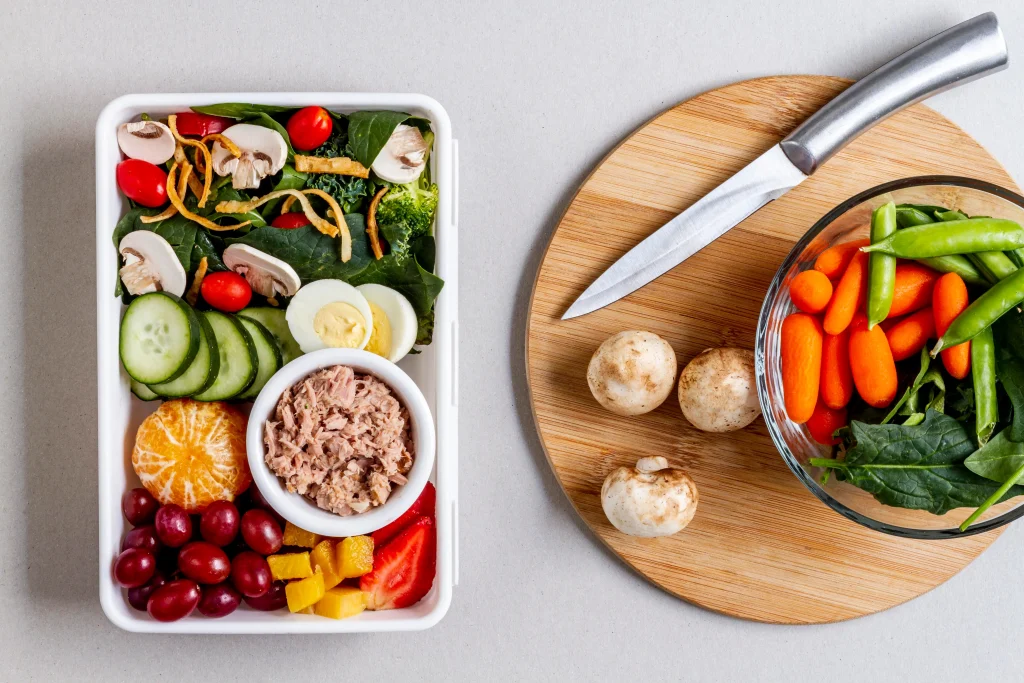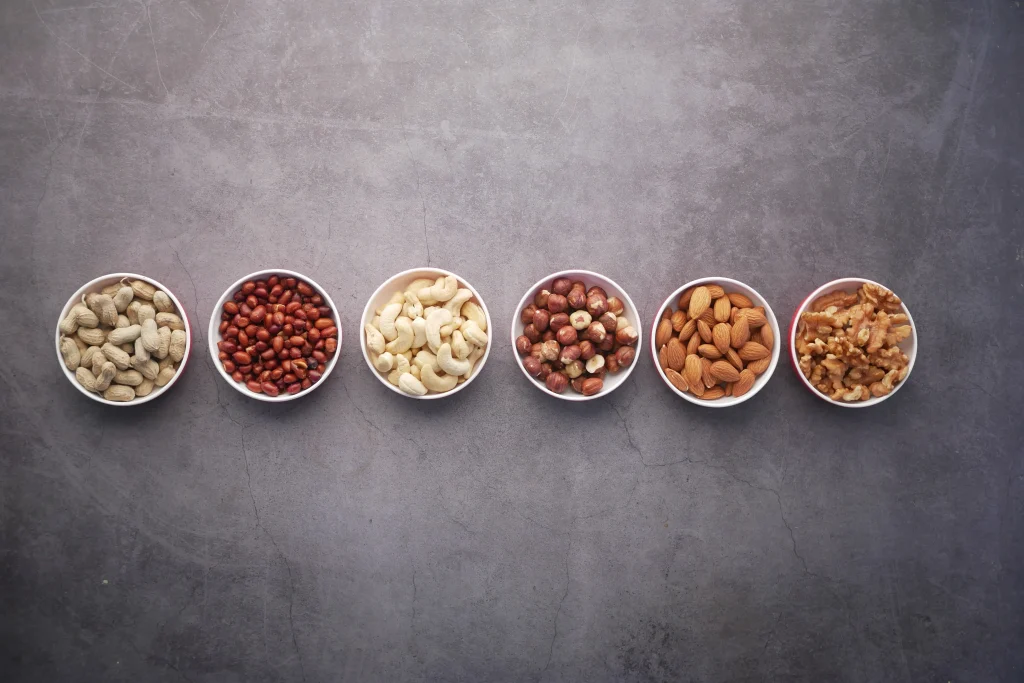Introduction:
When dealing with diabetes, it’s critical to keep a well-stocked pantry full of non-perishable foods. Non-perishable foods have a longer shelf life, making them more handy and dependable options for diabetics. In this post, we’ll look at the 18 best non-perishable foods for diabetics that can help them maintain stable blood sugar levels while also supplying necessary nutrients.

Canned Tuna or Salmon:
Canned tuna or salmon are high in omega-3 fatty acids and protein. To prevent extra calories, use those packaged in water rather than oil.
Nuts and seeds:
Almonds, walnuts, chia seeds, and flaxseeds are full of fibre, protein, and healthy fats. They are filling snacks and can be added as salad or yoghurt toppings.

Whole Grain Cereal:
Seek out whole grain cereals that are strong in fibre and low in sugar. They can be had with Greek yoghurt or unsweetened almond milk and offer a steady energy release.
Quinoa:
Quinoa is a protein-rich grain that is also high in fibre and important minerals. It cooks rapidly and can be used as a foundation for salads or side dishes.
Dried Beans and Lentils:
Because beans and lentils are high in fibre and protein, they are excellent alternatives for people with diabetes. They provide a nutritious and substantial addition to soups, stews, and salads.
Canned Vegetables:
Canned vegetables, such as tomatoes, green beans, and carrots, preserve their nutrition and can be utilized in a variety of recipes. To reduce salt intake, look for low-sodium choices.
Sugar-Free Peanut Butter:
Peanut butter is high in protein and good fats. To prevent extra sugar, use sugar-free options. Use it as a dip for fruits and veggies or spread it on whole-grain bread.
Olive Oil: Olive oil is a heart-healthy fat that can be used in cooking or as a salad dressing. It has monounsaturated fats, which can aid with blood sugar regulation.
Canned Chicken or Turkey:
Canned chicken or turkey provides a convenient source of lean protein. It can be used in salads, wraps, or mixed with vegetables for a quick and easy meal.
Canned Fruits in Juice:
Choose canned fruits packed in their juice instead of syrup to avoid excessive sugar intake. Fruits like peaches, pears, and pineapple can be enjoyed as a snack or added to oatmeal.
Low-Sodium Broth:
Low-sodium broth serves as a base for soups and stews. It adds flavour without contributing excessive sodium, making it a suitable option for individuals with diabetes.
Sugar-Free Jams or Preserves:
Spread sugar-free jams or preserves on whole-grain toast or use them as a topping for yogurt. Look for options sweetened with natural alternatives like stevia or erythritol.
Unsweetened Applesauce:
Unsweetened applesauce is a flexible ingredient that can be used in baking or consumed alone. It gives natural sweetness without the addition of sugar.
Whole Grain Pasta:
Choose whole grain pasta over refined pasta to reap the benefits of additional fibre. For a well-rounded meal, pair it with lean protein and vegetables.
Low-Sodium Canned Soup:
Canned soups are a convenient and quick supper alternative. Choose low-sodium choices and read labels for extra sweeteners.
Sugar-Free Dark Chocolate:
A delightful treat can be dark chocolate with a high cocoa content (70% or more) and no added sugars. It is high in antioxidants and may be beneficial to heart health.
Herbal Tea:
Herbal teas, such as chamomile or green tea, can be consumed hot or cold. They hydrate you without adding calories or sugar.

Sugar-Free Drink Mixes:
Sugar-free drink mixes can flavour water without boosting blood sugar levels. Look for selections that are sweetened with artificial sweeteners or natural sweeteners.
Conclusion:
Maintaining stable blood sugar levels is critical for diabetics, and having a well-stocked pantry of non-perishable items can be extremely beneficial. The above-mentioned 18 non-perishable food items provide a nutritional balance while being convenient and long-lasting. Include these options in your meal planning to ensure that you always have healthy options available, even if fresh products are not easily available. Remember to seek personalised advice on managing your diabetes and nutritional needs from a healthcare practitioner or a trained dietitian.
